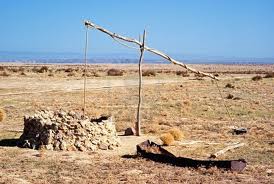Background Passage: Psalm 106:1
We approach the most joyous of holiday seasons from Thanksgiving to Christmas this year under the darkening shadow of Covid-19 as the long-promised fall surge in corona virus cases hits our nation with a vengeance.
We continue to endure a bitter political season that has fractured our country with seemingly no one willing to walk the higher ground. Suspicion invades our hearts, leaving our country teetering in its wake.
Many among us feel…
Isolated and alone.
Divided and angry.
Worried and scared.
Suspicious and accusing.
Pessimistic and hopeless.
That seems to be the condition of the world. I’m not so naive that I cannot see these issues or feel their impact around me. As a Christian, I am not immune to its gravity, but I refuse to let these events steal my joy.
I…we…have so much for which to be grateful even during this uncertain time for God’s gifts and grace transcend pandemic and politics. Surrounded by family, friends and God’s ever-present love, there is a place of peace even in the turmoil of the day. For such things, I am eternally grateful.
So, I remind myself in this week of Thanksgiving to take a deep breath and relax.
We use the term “overwhelmed” to express that feeling of being swamped by the circumstances around us. We rarely, if ever, talk about being simply “whelmed.”
Yes, it’s a word defined in Webster’s Dictionary as “an act or instance of flowing or heaping up abundantly; a surge.”
Rather than feeling overwhelmed, I want us to feel whelmed…to feel a surge of thanksgiving as we reflect on the blessings of life granted by a loving God.
I cannot speak to those things for which you could be grateful. You alone can do that.
As I sit in the quiet of this moment, I am thankful for my parents, my brother and sister, my wife, my two sons and their wives, and my grandchildren. I am grateful for an extended family of “laws and in-laws” who have forever accepted me for who I am. I am grateful for love given and love received.
I am grateful for friends from childhood to present day who, even today, continue to create and share in the best moments of my life.
I am grateful for God’s gift of this community as a place of service and belonging. A people who let me serve and who served me in my times of need.
I am grateful for a church who for four decades has been my spiritual foundation, filled with fellow imperfects who love each other into a more perfect understanding of God’s grace and peace. A people who know their responsibility to be the face, the hands and feet of Christ not just within the walls of the church, but in the city, state, country and world beyond.
I am grateful to my God who saved me and loves me in spite of myself. Whose presence brings healing and comfort to every hurt and need in my life. Whose blessings and grace deepen the joy I feel in my connections and relationships with those I encounter. Whose spirit continues to open my eyes to the vitality of his word.
A host of scripture speaks to our need to express thankfulness to our God. Here are a couple of my favorites.
“Oh, give thanks to the Lord for he is good; for his steadfast love endures forever.” (Psalm 106:1)
The language of the psalm is an imperative, a command. To the believer loved by God, the call to thanksgiving is not an option. Thankfulness ought to be our natural response as recipients of God’s unmerited favor.
We respond with thankfulness because of God’s goodness. Our limited understanding of goodness, tempered as it is through our lens of sin, is a pale facsimile of goodness that is truly in God. Jesus told us as much in Luke 18:19 when he told the rich, young ruler, “no one is good, except God alone.”
To declare that God is good is to know with certainty that his every word and act is always true and right. It is his goodness that offers redemption to a sinful world…the ultimate act of goodness through the sacrifice of his own son.
When you read “steadfast,” think resolute, unwavering. God’s love never fails. Never abandons. Never falters. Never withdraws.
God’s love always provides. Always sustains. Always nurtures. Always remains. Always embraces. Always comforts. Always endures.
Thanksgiving is a good day to remember. If you dig deeper in Psalm 106, you find that the people of God lost their way when they failed to remember what God had done for them.
“…they did not remember your many kindnesses…” (vs. 7)
“…they soon forgot what he had done…” (vs 13)
“…they forgot the God who saved them…” (vs. 21)
I don’t ever want to be guilty of their forgetfulness. I think that’s why the Psalmist makes his statement in the form of a command, “Give thanks…,” as an on-going directive to always remember what God has done for us.
We are a forgetful people with short-term memories and a “what have you done for me lately” mentality. Thanksgiving is remembering in gratitude a God who does not forget his people nor his promises.
Those people I mentioned earlier, the ones for whom I expressed my gratitude, they came into my life sent by God to be a part of my life. They have been before and beside me the face and hands of his steadfast love and his unfathomable goodness all the days of my life.
I am eternally grateful.
Thank you, God.


